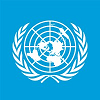Ccac Fossil Fuels Expert - Paris, France - United Nations
Description
Result of ServiceThe "CCAC Fossil Fuels Expert" will provide full-time support to help drive mitigation in the sector and ensure a well-functioning and strategic CCAC Fossil Fuels Hub.
The consultant will provide direct support to national governments and CCAC National Consultants; provide technical reviews of funding proposals related to the sector; provide support for technology assessments and advise on new business models; provide support for policy and regulatory development; engage key organizations to expand the sectoral network; deliver various activities as set out in the Work Plan and Budget; and contribute to internal coordination within the CCAC Secretariat.
Work LocationParis, France (or remote, with monthly/frequent travel to Paris at consultant's own cost)
Expected duration
12 months
Responsibilities:
The UNEP-convened Climate and Clean Air Coalition (CCAC) is a partnership of governments, intergovernmental organizations, and representatives of the private sector, the environmental community, and other members of civil society.
The CCAC is the only international initiative working on integrated climate and clean air solutions to reduce the rate of near-term warming.
It focuses on fast action to reduce emissions of short-lived climate pollutants (SLCPs) including methane, black carbon, HFCs and tropospheric ozone.
The United Nations Environment Programme (UNEP) hosts the Secretariat at the Economy Division in Paris.The Fossil Fuel Engagement Strategy focuses on reducing methane and black carbon emissions from the oil and gas sector. It aims to reduce methane by 45% by 2025, and 60-75% by 2030.
An estimated 122 Mt of methane was emitted by the fossil fuel sector (oil, gas, and coal) in 2010, approximately 37% of total anthropogenic methane emissions.
This is projected to increase to 142Mt by 2030.If all current technological options are deployed (maximum technically feasible scenario) 2030 methane emissions could decrease by 101 Mt (-71%).
The CCAC Scientific Advisory Panel has published a number of scientific assessments, including the Global Methane Assessment and the regional integrated assessments that show that to be consistent with 1.5C scenarios, by 2030 methane from the fossil fuel sector needs to be reduced by at least 65% (55% - 75%) compared to 2010 levels.
Up to 80% of oil and gas measures and up to 98% of coal measures are low or negative cost.
By 2030 reductions from the sector could avoid 0.14 °C of warming and prevent 151,460 premature deaths.The CCAC's Fossil Fuels Hub convenes a network of experts from governments, NGOs, IGOs and the private sector.
Together the Hub defines and drives a common vision, enabling peer-to-peer exchanges, exploring case studies and best practice, facilitating matchmaking between projects, programmes and funding from various partners, and aiming at creating a project pipeline.
The Hubs also advise governments on ways to define and implement mitigation measures based on sector-specific requests, and play a key role in identifying and sharing SLCP mitigation measures and strategies for implementation at scale, and opportunities for transformative change in their sectors.
Objectives:
Engage with countries and key partners/organisations on CCAC sectoral work - especially to:
- Encourage, and as appropriate provide support for "targeted expert assistance"
- Advise countries and CCAC National Consultants on ad hoc questions related to the sector related to policy and implementation
- Support and assess requests for proposals to drive national action and transformation of the sector
- Through CCAC-funded projects
- By engaging CCAC partners and other relevant organisations
- By expanding the CCAC Fossil Fuel Hub's network of implementing partner organisations
- By enhancing coordination with the International Methane Emissions Observatory (IMEO), including the Oil and Gas Methane Partnership (OGMP2.0) and Methane Alert and Response System (MARS)
- By providing support for technology assessments and advising on new business models
- By providing support for policy and regulatory development
- Monitoring related and complementary activities
- Building consortia for proposals for nonCCAC funding
- Leveraging CCAC communications or political mobilisation
- Strategize ways to mobilise partners and funds for projects
- Support sectoral Hub country coleads in advancing the Engagement Strategy
- Support highlevel political engagement, such as through Ministerial roundtables
- Strategize and leverage CCAC assets such as political leverage via the CCAC Ministerial, the Work Plan & Budget and/or communication channels/strategies
- Review CCAC Engagement Strategy for sector and propose updates as needed
Plus d'emplois de United Nations
-
U4e African Regional Coordinator
Paris, France - il y a 2 jours
-
Ccac Senior National Technical Coordinator
Paris, France - il y a 5 jours
-
Ccac National Slcp Expert
Paris, France - il y a 3 jours
-
Administrative Assistant
Paris, France - il y a 2 jours
-
Methane Planning Expert
Paris, France - il y a 1 semaine
-
Cooling Policy and Planning Specialist
Paris, France - il y a 4 jours

